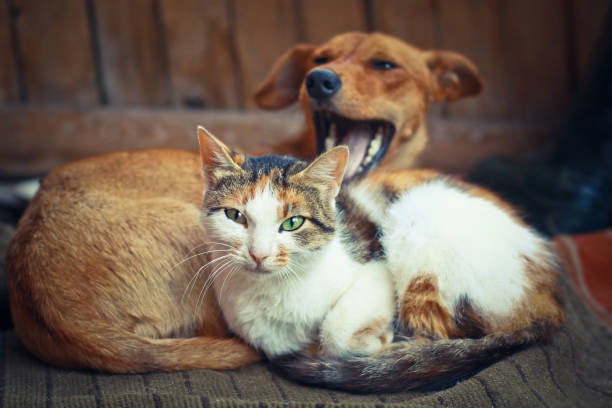As pet owners, we all cherish the countless joys our furry friends bring into our lives. However, with the responsibility of pet ownership comes the need to recognize when your pet’s health is in jeopardy. Knowing the signs that indicate it’s time to visit a vet clinic immediately can be the difference between a minor health issue and a serious medical emergency. Let’s look into the critical signs that demand prompt veterinary attention.
Unusual Behaviors That Signal Distress
Paying attention to changes in your pet’s behavior is crucial, as they often communicate discomfort or illness through their actions. Here are some signs that should prompt you to take your pet to the vet without delay:
-
Sudden Aggression or Withdrawal: If your typically social pet suddenly becomes aggressive or retreats, it could indicate pain or discomfort.
-
Lethargy: A sudden lack of energy or interest in activities they usually enjoy can be a sign of various health issues.
-
Excessive Grooming: Pay attention to any changes in grooming habits, especially if your pet is licking or biting a specific area excessively.
Physical Symptoms You Can’t Ignore
Physical signs can be more straightforward indicators of your pet needing immediate medical attention. Here are a few critical symptoms:
-
Difficulty Breathing: Any signs of labored breathing warrant an urgent vet visit.
-
Extreme Weight Changes: Sudden weight loss or gain can point to underlying health issues.
-
Persistent Vomiting or Diarrhea: While occasional stomach upsets can happen, ongoing issues could signal serious conditions.
For conditions requiring surgical intervention, finding a clinic that provides veterinary surgery in New Jersey or your local area with a reputation for excellence is crucial. Surgical procedures can range from routine spaying and neutering to more complex operations needed to resolve internal issues or injuries.
Emergencies That Require Immediate Action
In some situations, you might face clear emergencies that require you to act fast. These include:
-
Severe injuries, such as being hit by a vehicle
-
Uncontrollable bleeding
-
Ingestion of toxic substances
In such cases, seeking emergency veterinary care is imperative to ensure the best possible outcome for your pet.
The Role of Preventative Care
Recognizing emergency signs in pets is essential, but equally important is the adoption of a proactive approach to their health through consistent veterinary check-ups. Such preventative measures can significantly reduce the onset of various health complications. When diseases are identified early on, the options for treatment are usually more effective, potentially less invasive, and can result in lower medical costs. This proactive health strategy underscores the importance of regular veterinary visits in maintaining the overall well-being of pets.
Specialized Veterinary Services
Sometimes, your pet may require specialized care beyond what a general vet practitioner can offer. When it comes to skin conditions, allergies, or ear infections, seeking comprehensive pet dermatology services can lead to a significant improvement in your pet’s quality of life. These specialists are equipped to diagnose and treat a variety of dermatological issues, ensuring your pet remains comfortable and healthy.
Financial Planning for Veterinary Care
Veterinary care, including emergency treatments or specialized services like surgery or chronic disease management, often comes with high costs. Financial planning for these potential expenses is crucial for pet owners. To mitigate financial stress, consider options such as pet insurance, setting aside a dedicated savings fund for pet care, or taking advantage of payment plans and financial assistance programs that many veterinary clinics offer. This proactive approach ensures your pet can receive the necessary care without delay.
Building a Relationship with Your Vet
Establishing a trusted relationship with a veterinarian is crucial for any pet owner. When your vet knows your pet’s medical history and personality, they can provide more personalized and effective care, especially during emergencies. This familiarity allows for quicker diagnosis and treatment decisions. The comfort of having a reliable professional who understands your pet’s specific health needs cannot be overstated, making it an invaluable aspect of pet care.
Home Care and Monitoring
Post-visit, your vet will likely recommend home care instructions. Diligently following these guidelines and keeping a close eye on your pet’s recovery progress is crucial. Should there be no improvement or if your pet’s condition worsens, immediate follow-up with the vet may be necessary.
Final Thoughts
Understanding and recognizing the signs that your pet needs urgent veterinary care is crucial for their health and happiness. Observing unusual behaviors and physical symptoms that indicate trouble and knowing how to respond to emergencies are essential practices for every pet owner.
Emphasizing the importance of preventative care and maintaining a strong relationship with a trusted vet plays a significant role in ensuring your pet’s well-being. Staying informed and prepared, including understanding the need for specialized care and budgeting for vet expenses, are vital steps in providing the best care for your beloved pet, ensuring their joy and companionship continue for years.

